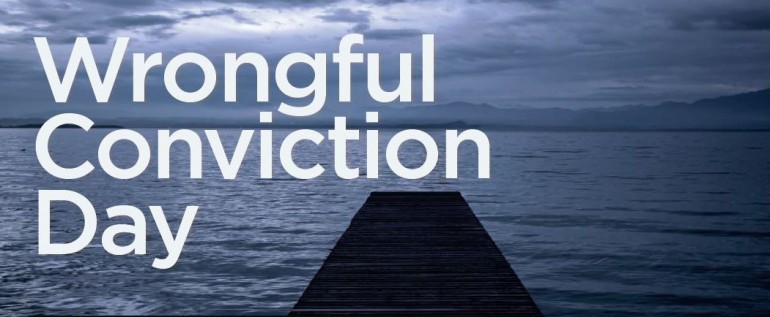By Lucy Sky
Thursday marked the first ever ‘Wrongful Conviction Day’ in countries around the world.
The day was organized by the Association in Defence of the Wrongly Convicted and aims to raise awareness of the problem.
James Lockyer, founding director of the Toronto-based association, said in an article on the Ontario Legal Aid blog that wrongful convictions are an international problem.
Lockyer, who is also a lawyer for some of Canada’s wrongfully convicted, including Romeo Phillion, David Milgaard, Robert Baltovich, Guy Paul Morin, said that the U.S., New Zealand, Australia, U.K., the Netherlands, Ireland and Japan are other countries now on board.
Ronald Dalton, the Association’s co-president, who was also wrongfully convicted, told Humber News that one of the reasons he does “some of this volunteer work with AIDWYC on a part-time basis is that I don’t know if I would have the stomach to do it full time.”
He says re-living the events “really takes you back and it’s really frustrating (remembering) some of the things we have to deal with.”
Dalton spent nine years in a maximum-security prison, wrongfully accused of murdering his wife. He has three children who since his incarceration have conceived five grandchildren.
His daughter had graduated kindergarten just months before her mother died and father was wrongfully incarcerated. He said she’ll always say there wasn’t a time throughout the 12 years she was in school that she was able to look out into the audience after that and see one of her parents there, until he was exonerated and made it to her high school graduation by merely two hours. “I lost everything in between,” he said.
He said that Canada has a long history of wrongful convictions.
“I always felt that the Steven Truscott case was a national [dark spot] on Canada. We allowed a 14-year-old child to be sentenced to hang back in 1959 and it took us 50 years correct that mistake as a country,” said Dalton.
Lockyer echoed this sentiment, “…wrongful convictions have occurred, are occurring and will continue to occur in the future. There’s a need to change our system to uncover them and avoid them in the future.”
Dalton said not only does this take a toll on the person involved, but even more so on the people left behind.
“I had three hots and a cot… it wasn’t the greatest accommodations, but I had a lot of time on my hands and my family was out there struggling to survive while I wasn’t allowed to provide for them,” he said.
“24 hours after losing my wife, I found myself arrested and charged with murder… my kids went to bed with a mother and woke up without one.”
He said that he can always remember his daughter, wondering how to tell a six-year-old and a nine-year-old that their mother had died. “When I told her, she laughed thinking her brother and I were joking, then she cried because we were crying, then half hour later she was asking me about breakfast.”
Dalton said one of the leading causes of wrongful conviction is the authorities rushing to judgment, as they did in his case. “In my situation, they had lots of time to have the pathologist’s work double checked by someone more experienced and do more investigations… I was a bank manager with three small children, about to bury my 31-year-old wife. I wasn’t going any place, there was no rush to go out and make an arrest,” he said.
While that may be one of the most common causes, there are many other things that can cause a wrongful conviction.
“There are also things like DNA, eye witness identification, tunnel vision, and false confessions,” Dalton said. These things can factor into a case and make it look like something that if the time was taken to disprove all other alternatives, would be apparent isn’t the truth.
He added that they can convince you to admit to something that you didn’t do by offering you the option of a plea deal instead of sentencing you to life, taking away your family and charging you with something as heavy as murder.
In Toronto, the day featured a press conference, a lecture and ended with a reception hosted by the Law Society of Upper Canada. Lockyer said it’s also a day for the wrongfully convicted themselves, an acknowledgement of the injustice of what’s happened to them. “The right to not be convicted of a crime you didn’t commit is a human right – and if one day a year is a wrongful conviction day, that’s a good thing,” he said.



